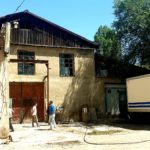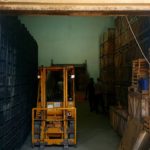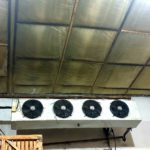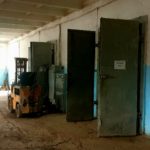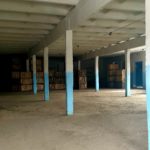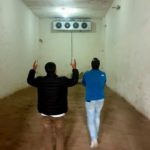Prospection for new projects
Beside the implementation (Senegal) or the launch of a new funding phase (Kyrgyzstan) of the projects supported by the Foundation, various steps have been taken to develop new projects.
Exchanges and discussions led to the perspective of a second project in Kyrgyzstan in partnership with CAMP Alatoo, partner of the PROMEE project. The Foundation may also open up a third country of intervention, with opportunities identified in Jordan, a country with a quiet interesting context.
Jordan, a conducive environment
Feedback from the mission in Jordan
The first contact with Masar Society for Environmental Development (MSED) was made in February 2023. Following various meetings and discussions, The Foundation carried out an exploratory mission in October 2023.
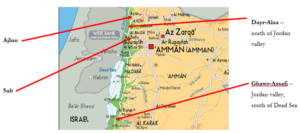
Various stakeholders have been met during the field trip :
- Farmers from the north and south of Jordan valley
- Civil Society Organizations working in the fields of access to energy and / or microfinance.
- Technical universities and photovoltaic training centres
- Companies providing photovoltaic installation services
- Technical equipments and material retailers
The connexion to the grid reaches nearly 100% in Jordan. the non-connexion in the visited areas mainly concerns some remote farms.
However, the energy sector is one of the most vital in the Hashemite Kingdom of Jordan due to its dependence on imports : 93% of its total energy needs in 2018 are from foreign sources.
Consequently, over the past few years, an effective energy policy was adopted towards sustainable energy aiming at substantially in achieving energy security by diversifying imported sources, developing, and using local and renewable local sources.
Among them, wind and solar are the most have great potential. in terms of photovoltaic energy, the country is part of the solar belt, with a significant solar radiation average ranging between 5 and 7 KWh/m2 daily.
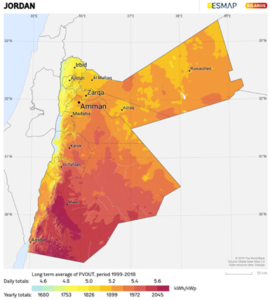
A possible partnership under construction
The mission was supported by MSED, this organization being committed to support sustainable development dynamics, environment education and renewable energies.
To support these initiatives and host events related to these topics, MSED is finalizing the building of the Alya Ecovillage, located in Salt.
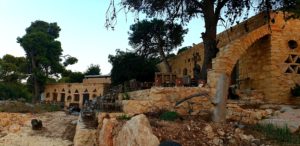

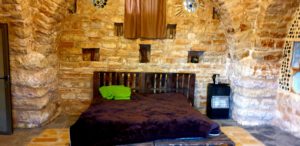
This village is built using traditional, sustainable (wood, mud, stone) and re-used materials (window frames, glass bottles, etc.), with the contribution of volunteers (national and international) to the construction. The ambition is to demonstrate the feasibility to build with modest cost and a sustainable approach, in a context of strong increase of property prices / building costs.
Most of the accommodation are completed. Eventually, a conference room, a workshop and a collective kitchen will complete the facility, which will be used for seminars, meetings and training courses.
Project's ideas to explore
Energy is key in the agriculture area of Jordan valley (irrigation in particular). Coupled with the gaps of qualified solar technicians on the labor market, training of photovoltaic technicians appears to be a key element to adress the needs of energy customers as well as job seekers.
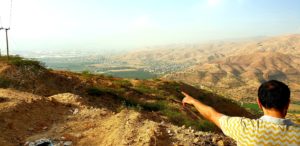
The PVSYST Foundation is then considering activities in this sector. Such intervention could meet the needs of farmers and households in the Jordan valley, as well as those of future professionals, in a country where young people are particularly affected by unemployment (40% among 15-24 year olds). At the same time, the opportunity to develop financial support mechanisms for access to solar energy will be considered.
The discussions with MSED are going on, and a preliminary study is foreseen in order to refine the primary analysis and clear some legal and technical issues.
Prospection for a green-energy-backed cold storage
Regular exchanges with CAMP, the implementing partner of the "PROMEE" project in Kyrgyzstan, have highlighted the need of the farmer’s communities in Issyk-Kul oblast, mostly of them growing fruits. The climate and conditions are quite conducive for arboriculture. Many farmers of the area grow apples, pears and apricots. This project had already been mentioned in a previous article.
In February 2024, CAMP and the Foundation have signed a cooperation agreement to launch the preliminary study. The aim is to precise some elements identified during the field visit, and to clarify some pending questions.
The study is planned for 4 months, and divided into 4 components:
- overview of the situation: storage capacity in the area, assessment of production volumes, sales patterns, price analysis
- survey of stakeholders (local political and administrative authorities, communities) and establishment of a participatory governance model for the structure.
- Technical solutions: energy supply and cooling systems, suitability of photovoltaic energy.
- Business model analysis: investment model, return on investment, financing model.
All the collected data will be synthesized and analyzed in a report. This assessment will provide the relevant information to move forward with the project development.
